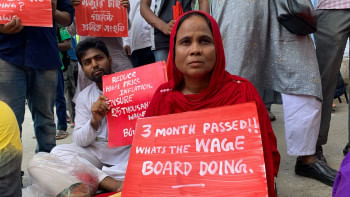Green milestone for RMG industry

At a time when the world is racing against the clock to curb the catastrophic impacts of climate change, with a shift towards greener economies and sustainable development, it is heartening to find that the RMG sector in Bangladesh is also keeping in step with the changing times. The industry has reached a new milestone after two more factories received LEED (Leadership in Energy and Environmental Design) certification from the United States Green Building Council (USGBC) for their green initiatives, raising the total to 200. According to industry leaders, although only 18 factories have secured this recognition so far this year, there are likely to be more such milestones to look forward to, since as many as 500 are awaiting certification.
The importance of such sustainable initiatives cannot be stressed upon enough. This year, we experienced one of the worst heatwaves the region has seen in the last century, which are now being followed by flash floods and landslides. Climate scientists have warned time and again how such extreme weather events are a result of the climate breakdown and will only get worse if the world does not come together to create carbon neutral economies. Given the dire situation we are in, while green initiatives are a step in the right direction, having only 200 green buildings out of 4,000 plus RMG factories in the country is simply not enough.
While such green factories could potentially contribute to global competitiveness, Bangladesh must also be tuned into the conversation happening around the environmental impacts of fast fashion. In June this year, the EU's environment chief declared that the age of under-regulation is over since the environmental waste created by this industry is "absolutely unacceptable", and there is a growing movement to shift towards ethically made and environmentally friendly apparel.
It is time for our RMG industry to turn their attention to this movement as well. This will require them to go beyond green factories to reduce waste, use resources more efficiently, and pay living wages to RMG workers. In all of this, global fashion brands must also play their part if we are to truly create a sustainable RMG industry.


 For all latest news, follow The Daily Star's Google News channel.
For all latest news, follow The Daily Star's Google News channel. 










Comments